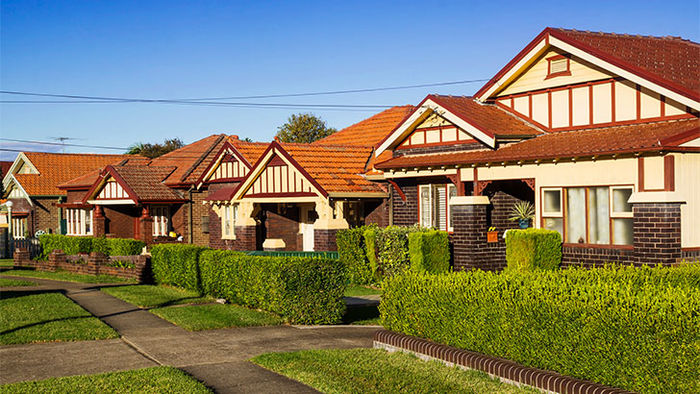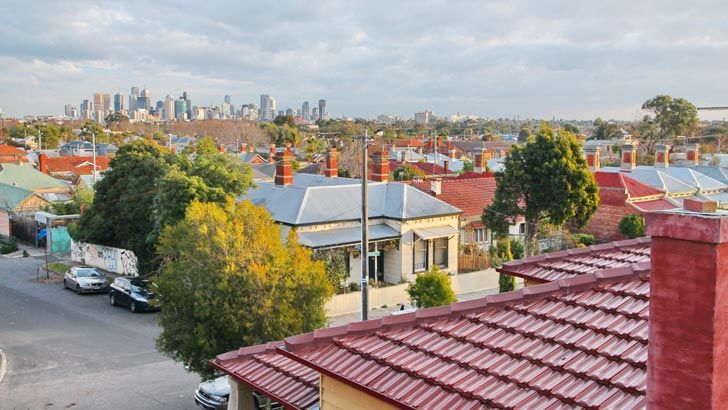The true cost of owning and maintaining a heritage home
By Nicola Field
Australia has about 100,000 heritage-listed properties, and they can be easy to fall in love with. But when it comes to buying a heritage home, be sure to act with your head, not your heart. While the idea of owning a slice of local history can be very appealing, there is a catch.
As Angus Raine, executive chairman of the Raine & Horne property group, points out, "the rub with heritage homes is that while the whole community loves them, it is the individual owner who wears the cost of restoring or maintaining them".
The bottom line is that these homes can cost more to restore, renovate and maintain and you need to go into the purchase with your eyes wide open.
What heritage means
Just because a property is old or brimming with character doesn't mean it is heritage listed.
"The term 'heritage features' is often applied to older homes, and it can mean high ceilings, leadlight windows or ornate tiling," says Raine. "That's very different from a heritage-listed home, which can be listed on the heritage schedule of the local council, the state heritage register, or hold a spot on the National Heritage List."
To achieve heritage listing a property must have historic or cultural significance. Despite this, its listed status isn't always clearly signposted.
In some states and territories, such as Tasmania and the ACT, the vendor or selling agent must disclose whether a property has a heritage listing. In other areas, agents are obliged to share "material facts" about a property, and arguably a heritage listing meets that description. Nonetheless, some buyers have reportedly signed up for a property only to discover later that it is heritage listed.
If you're looking at an older home, it pays to do your own due diligence.
Contact the local council, and check the heritage listings on your state government's environment website and national listings at environment.gov.au. It's a key step because a listing sets strict limits on what owners can, cannot and must, do with the property.
Impact on value
According to Raine, the market for heritage-listed homes is more significant than many realise. These properties tend to appeal to "green changers and older Australians". A listing can even mean an uptick in value. A Productivity Commission study found that in parts of Sydney's north shore a heritage listing can add 12% to a home's market value.
That said, Raine cautions that a heritage listing "does tend to raise eyebrows, especially if the property is in poor condition or needs a major overhaul to turn it into a family home".
This is because listed homes come with special responsibilities. Owners are required to keep the property in good condition, and even simple maintenance chores can become complex when they involve replacing materials on a like-for-like basis.
For instance, fixing a few broken tiles or a dodgy door knob is likely to demand more than a quick trip to Bunnings. Where original materials cannot be replicated, heritage bodies may allow modern equivalents, but that doesn't mean timber windows can be replaced with, say, aluminium frames.
To be sure you're not up for a mountain of unexpected repair and maintenance bills, a pre-purchase pest and building inspection is essential even when a heritage home appears sound. By definition these buildings are old, and issues such as termite activity or the presence of asbestos can be hard to detect and expensive to remedy.
Strict limits can apply
It's when a property needs a serious renovation or restoration that some soul searching is necessary.
Raine says owners often face restrictions on how a heritage-listed home can be renovated. In some cases only the facade may need to be preserved. In other instances, the renovation just needs to be sympathetic to the original character of the property. The key is to know what you can do before swinging a sledgehammer.
Most councils employ a heritage adviser who can offer early insights. Some have heritage architects who are available, often at little or no cost, to consult on proposed renovations.
A healthy dose of patience can come in handy too. Gaining approval for any changes can be a slow process. Not only are councils strict about approving development applications, Raine says the relevant heritage body may also need to approve the works.
Importantly, don't expect to buy a place as a knockdown and rebuild. Only rarely is permission granted to demolish heritage-listed buildings, and fines for damaging a listed property can be steep. In 2017, a Tasmanian man was fined $225,000 and ordered to pay legal costs to the Hobart City Council for illegally demolishing a listed 1890s-era house and chopping down two heritage-listed trees growing on the block. Yes, even plants can hold "significant" status.
Getting a loan can be harder
If you've seen a place you love, speak to your lender or mortgage broker before laying cash on the table.
"While each lender's policy is different, it can be more difficult to secure a home loan to purchase a heritage listed property," says Susan Mitchell, CEO of Mortgage Choice.
She adds that home loan applications are considered on a case-by-case basis but, generally, it can be difficult to gain approval for a heritage-listed property if you have less than a 20% deposit. Some lenders will ask for a minimum deposit of 30%.
Be especially careful if the property needs a complete overhaul. "Lenders may require a formal valuation to determine the property's condition," says Mitchell. "Depending on the results of the valuation, the lender may not be willing to lend at all if extensive repairs or maintenance are required."
Grants can help with the cost
Careful budgeting is a must for any renovation - even more so when it comes to a historic property.
"Heritage-listed homes can have features rarely seen in modern dwellings, such as pressed metal walls or ceilings," says Raine. "It can be more difficult and expensive to find tradespeople with the skills to complete restoration work. There could be possible hidden costs you won't know about until you buy the property. In this case, be sure to have some contingency finance to cover any unforeseen expenses."
On the plus side, government grants are available to assist with the restoration and maintenance of heritage homes, though they can have strings attached. Owners need to formally apply for a grant through the appropriate heritage body, and in NSW, for example, a matching co-contribution is required. If you're looking for a grant of, say, $20,000, you'll need to tip in $20,000 of your own money to be eligible.
Grant funding is usually drip-fed to owners in a series of payments, often with the full balance payable only after the works have been completed and approved by the heritage authority. So you may need to rely on your own financial resources to fund the job through to completion.
Higher insurance premiums
The cost of restoring or renovating heritage homes feeds into more expensive insurance premiums. The risk here is the potential to underinsure your home. The Heritage Council of Western Australia cautions that online calculators and insurer call centres may not provide the appropriate premium for heritage properties simply because they focus on modern buildings that fit with standard policies.
As specialist cover may be necessary, the Heritage Council suggests working out the replacement value of your home, and speaking with an insurance broker. Insurers such as Ansvar and Whitbread offer policies specifically designed for heritage listed buildings.
To compensate for some of the costs involved, owners of heritage-listed homes may be eligible for reduced council rates and land tax. You'll need to apply for a heritage valuation from your state's valuer-general's office and check with the local council to see what's available.
For homeowners it's a mixed blessing
Knowing if a heritage-listed property is right for you means setting romantic notions aside. Many find it a rewarding experience, but a survey of heritage property owners on Melbourne's Mornington Peninsula found 38% saw their home's heritage listing as a burden. Among those who had applied for a planning permit, 40% said the restrictions were onerous or unreasonable.
For those who are up for the challenge, owning a slice of Australiana can bring personal and financial benefits. By definition, there is a limited number of these properties and, as Raine notes, "most have achieved heritage status because they are unique, and in the supply/demand equation, scarcity helps to underpin a property's long-term value".
Just be sure you know what you're signing up for.
Get stories like this in our newsletters.




